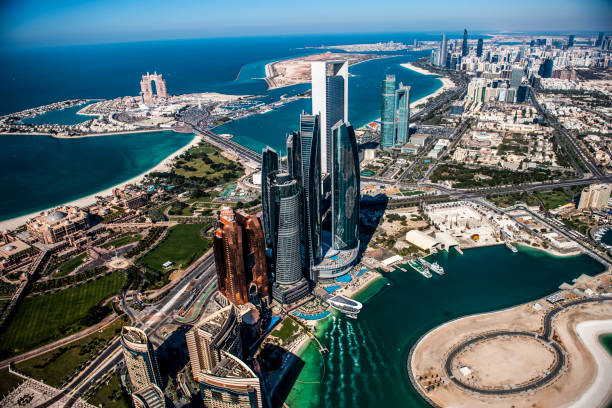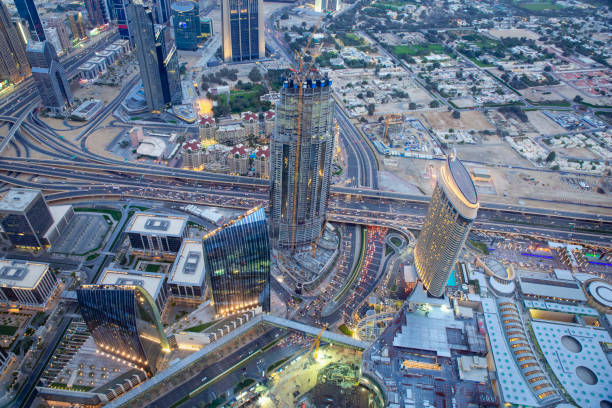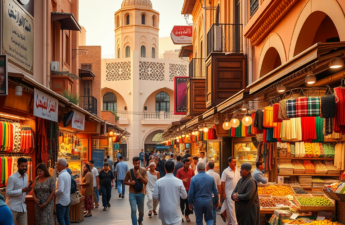Free zones in the UAE are designated areas that provide favorable economic and regulatory environments for businesses. These zones offer numerous benefits, including 100% foreign ownership, tax exemptions, and simplified business setup procedures. They are designed to attract foreign investment and stimulate economic growth by offering businesses an attractive operational framework. Each free zone operates under its own set of rules and regulations, tailored to support specific types of industries and activities.
Key Free Zones in the UAE
The UAE is home to many prominent free zones, each with unique advantages. Some of the key free zones include Dubai Airport Free Zone (DAFZA), Dubai Multi Commodities Centre (DMCC), and Abu Dhabi Global Market (ADGM). These free zones, along with JAFZA, provide an array of benefits and facilities tailored to different business needs. By understanding the distinct attributes of each free zone, businesses can make well-informed choices that align with their strategic goals.
JAFZA: An Overview
Established in 1985, Jebel Ali Free Zone (JAFZA) is one of the oldest and most significant free zones in the UAE. JAFZA free zone offers a strategic location near Jebel Ali Port and Al Maktoum International Airport, making it an ideal hub for international trade and logistics. The free zone is known for its world-class infrastructure, comprehensive support services, and business-friendly environment. Companies operating in JAFZA range across diverse sectors, including automotive, electronics, and consumer products.
Comparative Analysis of JAFZA and Other Free Zones
Business Setup Process
Starting a business in JAFZA involves a streamlined setup procedure, typically taking 1-2 weeks. Entrepreneurs can choose from various license types, including trading, service, and industrial licenses. The setup process in other free zones like Dubai Airport Free Zone (DAFZA) and Dubai Multi Commodities Centre (DMCC) also follows a similar framework but may vary in terms of documentation requirements and timelines.
Cost Comparison
Cost is a crucial factor when selecting a free zone. The setup and operational costs in JAFZA are competitive, but it’s essential to compare these with other free zones to understand the financial implications fully. Below is a table comparing typical costs in JAFZA and other free zones:
| Free Zone | Setup Costs (USD) | Annual Fees (USD) |
|---|---|---|
| JAFZA | 9,000 – 15,000 | 3,500 – 10,000 |
| DAFZA | 10,000 – 20,000 | 4,000 – 12,000 |
| DMCC | 8,000 – 18,000 | 3,000 – 9,000 |
Infrastructure and Facilities
JAFZA offers superior infrastructure, including warehouses, office spaces, and plots of land tailored to various business needs. The availability of integrated services such as customs, logistics, and transport further enhances operational efficiency. Other free zones, like DMCC and DAFZA, also provide excellent facilities but might differ in scale and specialization. Access to state-of-the-art infrastructure is a critical reason why many businesses opt for JAFZA free zone.
Regulatory Environment
Each free zone in the UAE has its regulatory environment tailored to support its specific industry focus. JAFZA is known for its flexible regulations and pro-business policies, which make it an attractive option for international businesses. Regulations in other free zones like ADGM and DMCC may be more stringent in certain areas, such as financial compliance and operational guidelines. Understanding these regulatory nuances can help businesses choose the most suitable free zone.
Industry Specializations
JAFZA caters to a wide array of industries, with key sectors including automotive, electronics, and consumer products. This diversity makes it a versatile choice for businesses across different domains. In contrast, free zones like DMCC are more specialized, focusing on commodities trading and financial services. Identifying the free zone that aligns with your industry can provide competitive advantages and industry-specific support.

Benefits of Choosing JAFZA
Strategic Location
One of JAFZA’s most significant advantages is its strategic location. Proximity to Jebel Ali Port, the world’s ninth-largest container port, and Al Maktoum International Airport ensures seamless connectivity and logistics support. This makes JAFZA an ideal choice for businesses involved in international trade and supply chain operations. Other free zones also offer strategic locations, but JAFZA’s connectivity is unparalleled.
Business Support Services
JAFZA provides extensive business support services, from licensing and visa assistance to operational support such as customs and import-export facilitation. This comprehensive support helps businesses focus on their core activities without administrative hassles. While other free zones like DAFZA and DMCC also offer robust support services, JAFZA’s comprehensive package is highly appealing to many companies.
Economic Incentives
Operating in JAFZA comes with attractive economic incentives, including tax exemptions, repatriation of profits, and no currency restrictions. These incentives substantially reduce operational costs and increase profitability. When compared to other free zones, JAFZA offers competitive financial benefits that are appealing to a broad range of businesses. Evaluating these incentives helps in making an informed decision about the best free zone for your company.
conclusion
In summary, JAFZA stands out due to its strategic location, robust infrastructure, and comprehensive business support services. The comparison with other free zones reveals various strengths and specialization that can influence a business’s choice. From understanding the cost implications to recognizing industry-specific advantages, selecting the right free zone can propel your business toward success. By considering your business needs and the unique offerings of JAFZA and other free zones, you can make a well-informed decision that aligns with your strategic goals.
Часто задаваемые вопросы
- Which free zone is best for tech startups in the UAE? Dubai Silicon Oasis is renowned for its support for tech startups with specialized incubators and incentives. It offers tailored resources and a vibrant ecosystem conducive to tech innovation.
- How long does it take to set up a business in JAFZA? Business setup in JAFZA typically takes about 1-2 weeks, depending on the completeness of the documentation and the type of business being established.
- Can I change my business activity after setting up in a free zone? Yes, you can change your business activity, but it requires approval from the respective free zone authority. The process may involve additional documentation and fees.
- Are there any hidden costs involved in operating in JAFZA? All fees are generally disclosed upfront, but it’s essential to account for additional costs like visa fees, office rent, and other operational expenses that may arise.
- Can all types of businesses operate in every free zone? No, some free zones have industry-specific regulations, so it’s important to choose a free zone that aligns with your business activity. For instance, financial services may best fit in ADGM, while trading companies might prefer DMCC.



